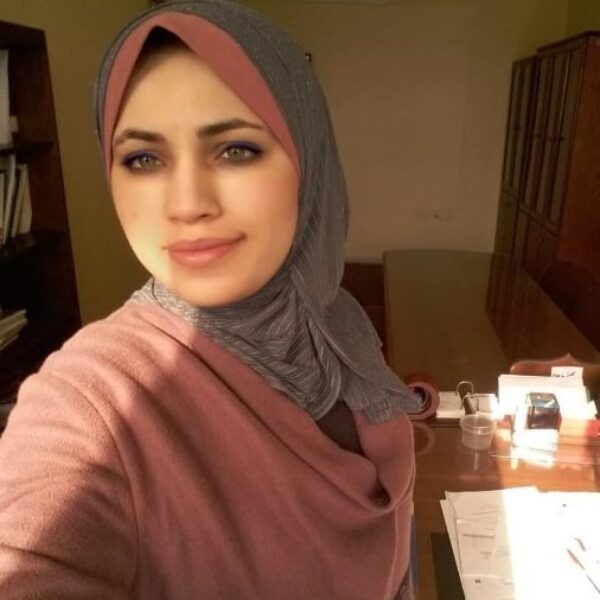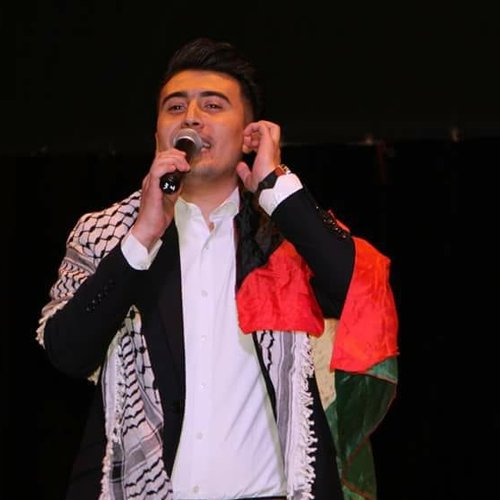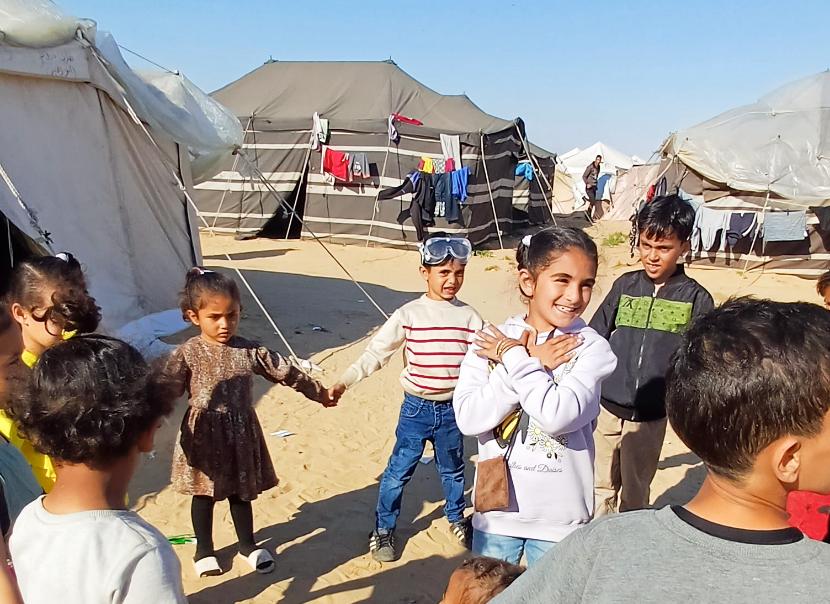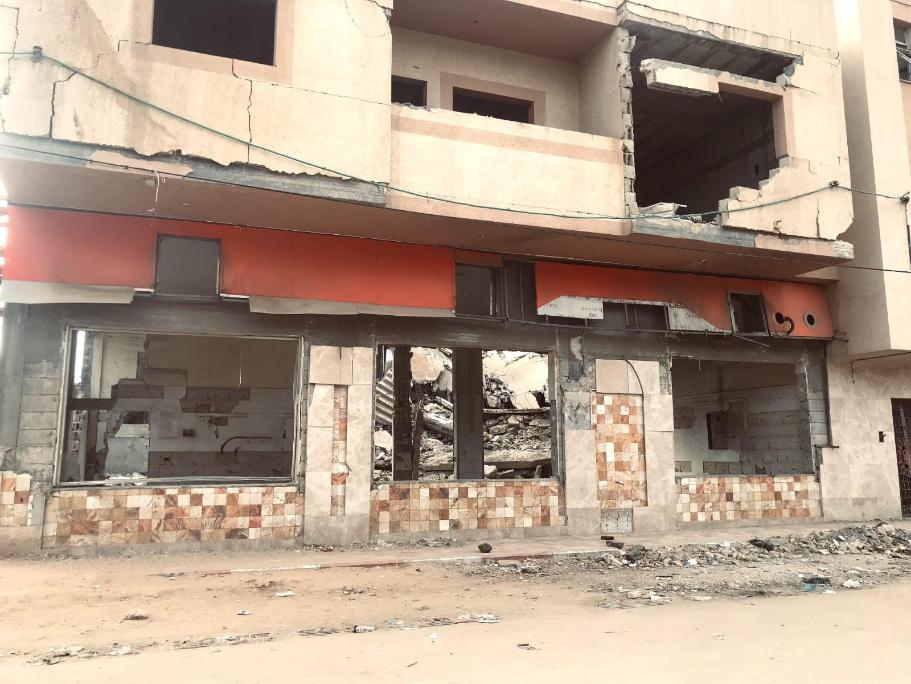Do you like Ahmed after reading this story? Go to our voting-instructions page, listen to his singing, then vote for him!
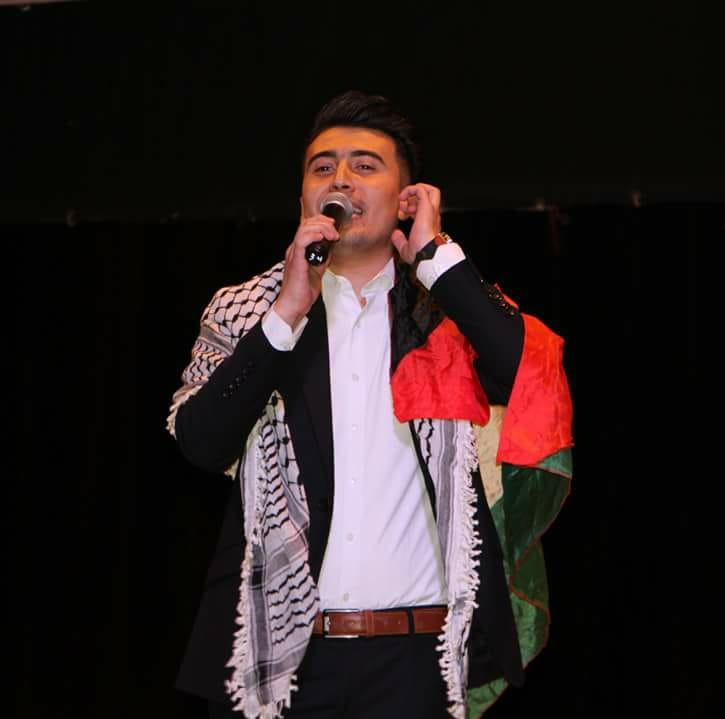
“In 2011, when I was attending the Islamic University of Gaza studying engineering, I participated in an art contest. I was the last candidate and after I finished singing, one of the judges asked me, ‘Is it the first time for you to sing on a stage like this with a large audience?’ I wondered why he asked that. Was I trembling? Did I commit a mistake? Oh God! I began to feel hot. He continued, ‘Are you in the third or the fourth year [of university]?’ Surprised, I answered that I was in my first year. He smiled and I cannot forget his facial expression and the words that followed: ‘Your place is not there,’ pointing to where I stood, ‘but it’s here,’ pointing to where he sat, ‘instead of me! Congratulations! You are the winner!’”
This is the story of how Ahmed Al-Daoor, 26, found his real vocation as a singer. In this globalized world where television, internet and all types of media are flooded with unlimited amounts of information, the ultimate question is whether to be what you want to be or to follow the crowd. Ahmed is following his heart.
Childhood
Ahmed was born in Gaza’s Jabalyia camp to a father who is an Arabic teacher and a mother who teaches English. As a result, he was, of course, encouraged to be a hard-working student early on. And he rose to their expectations.
Still, after finishing his homework, Ahmed listened to the radio or watched TV channels that specialized in music. He paid attention to the way singers pronounced the words and transitioned from one tone to another. His favorite program was Super Star, featuring Lebanese singer Malham Zain.
A life decision
In secondary school (what is known in Palestine as Tawjihi), Ahmed earned 92 percent on the scientific exam—a very high average. His parents were proud of him. However, Ahmed was not happy. Receiving an excellent score meant, in Gaza society, that he should study to be a doctor or an engineer. These are careers that can support a family—unlike music.
But, he said, “I wanted to study music so badly. I was dying for that dream to come true. I was counting the days and nights to graduate and start the first steps on the path of my passion. I wanted to be a singer!”
There was not much Ahmed could do to convince his family, though, since there was and still is no formal higher-education institution for music in Gaza and it is difficult to travel abroad. Thus, Ahmed started studying engineering. But music was always on his mind and in his soul.
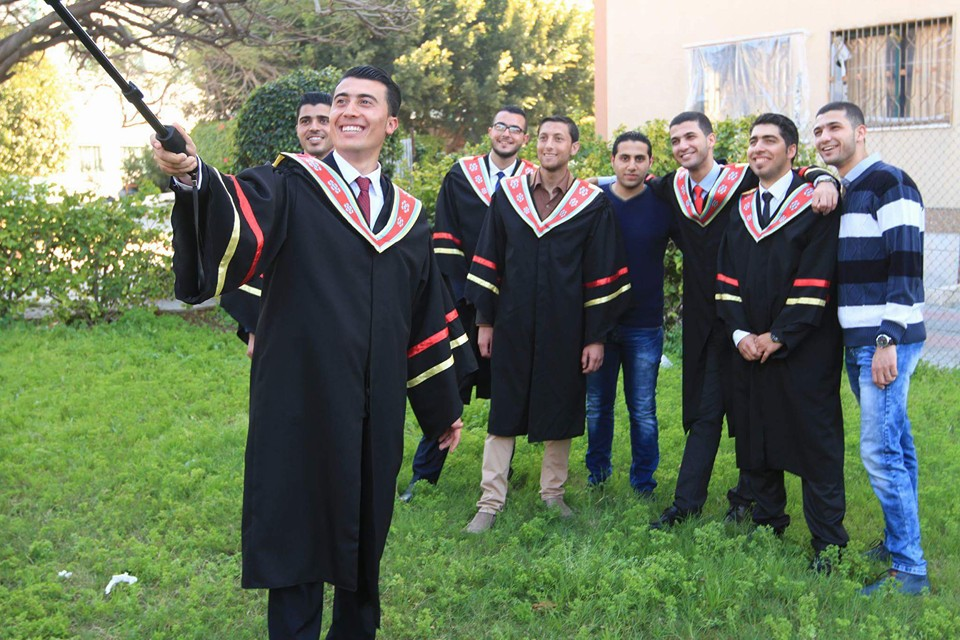
In 2013, Ahmed joined 4Shabab Institution and traveled with the group twice to Egypt, where he sang in ceremonies to represent Palestinian youth. In 2014, he won a singing contest held by Al-Kitab TV channel, which is established and funded by the Islamic University of Gaza. This helped him gain a bit of fame, since as it sponsored videos for the winners.
Post- graduation plans
In 2016, Ahmed finished his university studies and he sang on the Islamic University of Gaza stage on his graduation day. As with most graduates, he couldn't find a t job that paid much. Instead, he accepted a trainee position with a company.
"I was a zombie in that training. Singing is my oxygen. There was no space for me to breathe. I spent nights thinking of who I really was and what I was doing, how far I was from my real self and true dream. Finally,” he says, “I made my decision to study music and the arts.”
He says he was “reborn” when he traveled to Egypt to study in the High Institute for Arab Music, where classic Arab singers such as Abdel Halim Hafez and Mohammed Abdel Wahab studied.
In Gaza, some people and groups believe all but religious music is forbidden in Islam. Others think patriotic music is ok too—but little else. In contrast, Ahmed has a romantic taste in music. And in Egypt, he was allowed to explore it. He also met professional singers, editors and producers.
Likewise, there was no fear of being targeted in military aggressions. In the 2014 Israeli war on Gaza, Israeli forces bombed a residential building near the Al-Kitab TV channel where Ahmed first appeared; during another war, Israeli forces destroyed the cultural theatre of Saed Al-Mishal, where Ahmed had performed three times.
One dream come true
In February, Ahmed produced a video titled Ya Layaly ("Oh, our nights)." The video was received well by Egyptians but surprised many Gazans. Ahmed played a husband who is left by his wife but keeps remembering their lovely days together.
“It was my first attempt to express romance publicly as I sang,” he explained. “It was my first time to compose my own music. It was my first time to work with a well-known and professional staff. And most importantly, I finally was me.”
Ahmed returned to Gaza early this year after his parents insisted he should live close by and think about getting married. What he will do now, though, he has yet to decide.
“I was born to be a singer, but I have three choices,” he says. “I may return to Egypt and complete my studies and be a singer; I may stay in Gaza and be a singer, although that is really challenging; or I may think in a more realistic way and look for a job in engineering.”
What will his next chapter bring?
The song Ahmed sings for his Gazavision entry is below.
Arabic poem by Hind Jouda; English version translated by Hanin Elholy.
Music video here.
For a land wiping the tears of fatigue
and singing for life:
"I am the land of life!"
For a land eating the salt of anger;
supplicating heavens:
"Send me the rope of salvation."
Hold each other's hands,
be united in a row for truth,
and raise the call for prayers
in my land.
O, my homeland,
grant my heart content;
seek the path of return.
O, my homeland,
abandon the sounds of death;
seek the path of return.
Whenever I pass by;
–a lover under the sky,
ignore tears and listen to my far voice
raising again and singing:
"My homeland won't be lost."
Hold each other's hands,
be united in a row for truth
and raise the call for prayers
in my land.

